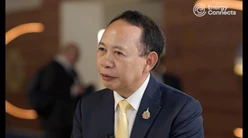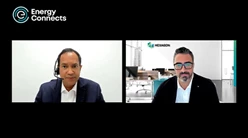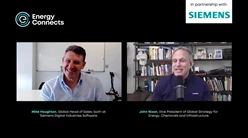IEF Secretary General urges inclusive transition to fight energy poverty
In an exclusive interview with Energy Connects at the 9th OPEC International Seminar in Vienna, Jassim Alshirawi, Secretary General of the International Energy Forum, shared his assessment of the global energy landscape, and addressed the deepening crisis of energy poverty, especially in rapidly growing regions of the Global South, where billions still lack access to electricity and clean cooking fuels.
He emphasised that the energy transition must be inclusive, recognising local realities, supporting resilient infrastructure, and ensuring that no community is left behind. In addition, he outlined the IEF’s collaborative work with organisations like OPEC, IEA, and the UN on initiatives ranging from transparent data reporting to sustainable development strategies. Here are the edited excerpts from the interview:
- The global population is rising, especially in the Global South. How is this shaping energy demand and supply, and what role does the IEF play?
Energy poverty is a global crisis. More than 700 million people still lack electricity, while 2.3 billion rely on traditional biomass for cooking. This traps communities in cycles of low productivity, poor health, and limited opportunity. And these burdens fall disproportionately on women and children.
Nevertheless, this problem is not confined to developing countries. Even OECD consumers face high costs and supply risks. Africa, on the other hand, faces the most acute challenge. The energy demand is expected to double by 2050, yet the countries do not have supporting policies and financing. The per capita consumption, notably, is expected to remain well below the global average.
The developing countries and the Global South, on the other hand, need affordable, reliable, resilient energy systems, which means blending renewables and conventional fuels. The solutions should be tailored to national contexts and local realities. Developed countries must do more to provide supportive policies and financing. At the IEF, we work with organisations worldwide to help countries achieve those goals.
- How is the IEF evolving under your leadership, and what role does it play in addressing energy poverty?
The IEF is an intergovernmental platform representing both producers and consumers. Our mission is to foster dialogue, ensure data transparency, support energy security, and enable an orderly, just, and balanced transition.
One example is our trilateral programme with OPEC and the IEA. Together, we compare and converge energy outlooks to narrow gaps in understanding about the future of energy and energy security. This helps countries chart their own path aligned with development goals.
We also coordinate the Joint Organisations Data Initiative (JODI), in collaboration with seven partners including the UN Statistical Division, Eurostat, OLADE, APEC, and the Gas Exporting Countries Forum. JODI provides vital oil and gas data to the global community, and we are working to improve quality and expand coverage to include sustainability metrics.
- From your perspective, how can the global economy balance energy security with the low-carbon transition?
The answer lies in diversification. Countries and companies alike need to embrace all forms of energy and technology. The world’s energy needs are expanding rapidly, driven by population growth, industrialisation, urbanisation, and the digitalisation of artificial intelligence (AI). To meet this demand, we must draw on every available source while advancing decarbonisation.
For oil and gas, this means deploying technologies that allow hydrocarbons to be produced and consumed with minimal environmental impact. In this way, we can meet demand while pursuing climate goals.
- Access to energy remains a pressing issue. How is the IEF supporting efforts to deliver cleaner, more affordable, and secure energy?
Through initiatives such as the Global Energy Solutions Initiative (GESI), we give voice to regions across Asia, Africa, the Americas, Europe, and the Middle East. We listen to stakeholders, publish insights, and encourage collaboration. We also work with partners such as the Oil and Gas Climate Initiative (OGCI) on decarbonisation, and with the African Energy Chamber to ensure the Global South is part of the dialogue. Our aim is to reflect their challenges and opportunities, and to encourage investment and financing for the projects they urgently need.





